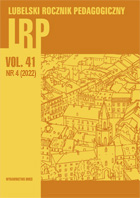W stronę psychologii i edukacji prośrodowiskowej: osobowościowe i socjodemograficzne korelaty tożsamości środowiskowej i dobrowolnej prostoty
Towards Pro-enviromental Psychology and Education: Personality Traits and Sociodemographic Correlates of Enviromental Identity and Voluntary Simplicity
Author(s): Dawid Le Hai, Paweł LarionowSubject(s): Personality Psychology, Human Ecology
Published by: Wydawnictwo Naukowe Uniwersytetu Marii Curie-Sklodowskiej
Keywords: environmental identity; environmental psychology; HEXACO personality traits; pro-environmental behavior; pro-environmental education; voluntary simplicity;
Summary/Abstract: Introduction: Climate change is one of the greatest threats to humanity today. Environmental identity, referring to the individual definition of self through the prism of human's relationship with nature, and the voluntary simplicity, which refers to the anti-consumer idea of life, are psychological constructs that have been analyzed in terms of personality and sociodemographic correlates in this work.Research Aim: The aim of this exploratory study is to analyze the relationships between environmental identity, voluntary simplicity and personality traits, as well as to search for sociodemographic correlates of the analyzed constructs mainly in the sample of young Poles. Method: In the study, 218 people, including 156 women (71.6% of the entire sample) and 62 men (28.4%), aged 18 to 63 (M = 25.40; SD = 7.43), completed the Environmental Identity Scale, the Voluntary Simplicity Engagement Scale and the HEXACO–60 Personality Inventory.Results: The results showed a high positive correlation between environmental identity and voluntary simplicity (r = 0.73) and their weak positive correlations with openness to experience, honesty-humility, conscientiousness, agreeableness and extraversion, as well as no relationships with emotionality and age. Women scored significantly higher on environmental identity and voluntary simplicity. The place of residence, education, marital and employment status, religion and subjective assessment of the material situation were not related to the analyzed constructs, whereas attitudes towards belief in God or higher force were positively associated with them.Conclusion: The similarity of the analyzed constructs was demonstrated. Personality traits and socio-demographic variables related to them were investigated. The practical implications of the research in promoting voluntary simplicity are discussed. The Polish translation of the Voluntary Simplicity Engagement Scale is presented. It may be used in pro-environmental education among students. Particular attention should be paid to males as a group that is less interested in pro-environmental issues.
Journal: Lubelski Rocznik Pedagogiczny
- Issue Year: 41/2022
- Issue No: 4
- Page Range: 53-76
- Page Count: 24
- Language: Polish

